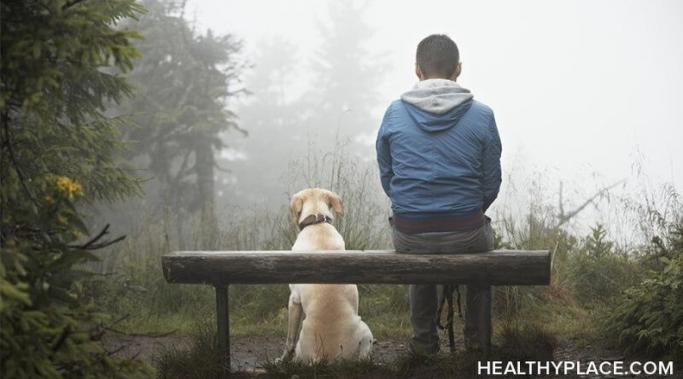Blogs
The title of this blog, Recovering from Mental Illness, argues that, yes, it is possible to recover from mental illness. But recovering from a mental illness is different from, say, recovering from a physical injury. I broke my ankle two years ago and spent time on crutches and in physiotherapy. The recovery period was slow, six months passed before I could walk with both feet, but my ankle slowly healed. It became well and functioned as it once had. I could rely on it to take me through the day. I could go running again.
Recovering from mental illness is not the same. The process probably does not require physiotherapy and Tylenol as the drug of choice. The road to recovery from mental illness is much longer, not usually smooth, and perhaps hot to the touch. Metaphors aside: it isn't easy.
I am not a fan of the term “drunkorexia” mainly because it is not a medical term, nor a diagnostic category of the DSM. I also worry about the sensationalization of terms that are made up and shared all over the media to gain attention. I do however recognize its ease of being a descriptor, and how people can automatically connect what the struggle is about (The Link Between Substance Abuse and Eating Disorders). Overall, I wish we would see the terms co-existing conditions or co-morbid struggles to help educate the public on co-morbidities and how common they are amongst many mental health issues.
“This week has been crazy! But, I accomplished my most important goal! I filed my tax return! Well, I filed my already extended tax return. I even get money back. I wish I had known that before. Oh well. I made an appointment with the accountant on Friday so I had a firm deadline and was sure to have enough time this week to get them done. All I had left was to finish up the last two months of 2010 and they would be complete…better late than never…it should have taken me only a few hours.”
"Sometimes it seems like the inmates are running the asylum. Then again, would a sane person want that job?" ~ Taz Mopula
Most of us who wrestle with mental health issues must also deal with feelings of low self-esteem. Knowing we are not quite “normal” sometimes leads to feeling “less than”. We work hard to address our maladies and gradually gain mastery over them. In time, we find ourselves moving among “regular folks” with new found comfort and confidence.
Then an amazing thing happens.
"The first step to taking control of your anger is to tell yourself, and keep telling yourself, I'm okay," writes Matsakis. "All that's happening to me is that I'm feeling angry. All I have to do with my nager today is feel it. I can figure out later what to do about it. All I have to do now is ride with it. If I can just feel the anger without hurting myself or someone else, I am a success."
This weekend, Bob turns 10 years old. A momentous occasion, for sure--why haven't I been in the mood to celebrate?
Aside from it being tough to get into party-planning a for someone who has acted anything but party-worthy...parties and Bob don't mix.
One of the problems with mental illness is that it is episodic. Particularly in the beginnings of mental illness, someone will have an episode of illness, and then an episode of wellness. While I'm never against episodes of wellness, this does lead to a problem: when we're well, we convince ourselves we don't have a problem and refuse to get help.
This is normal human behavior. No one wants to believe there is anything wrong with them. So it's natural to deny problems when they are not readily harming us. Unfortunately, this means that many people don't get help for a mental illness.
When we're sick, we're too sick to get help. When we're well, we deny we need it.
I hesitated to use the word war in the title. I considered using the word struggle. But war is defined by combat: You are at war with your mental illness. Sometimes, every day. Struggle means many things, but war feels appropriate. You can win a war, perhaps struggle along the way, but land on your feet nonetheless.
Hi, my name is Jack, and I suffer from depression.
I was first diagnosed with Major Depressive Disorder about seven years ago, but I’ve been waging war on this brain disease for a long time. And it is a disease. It is not a character flaw. It is not an excuse for my shortcomings. It is not a spiritual defect. It is not a case of the occasional blues. It is real, and it is painful — physically painful. It is maddening and it can be gut wrenching. It is an illness just as diabetes is an illness.
I call it a war because war is hell, and so is clinical depression.
The stigma attached to mental illness is powerful because of ignorance. But is living openly with mental illness in an effort to change the stigma a good idea? More Than Borderline's Becky Oberg considers this.







